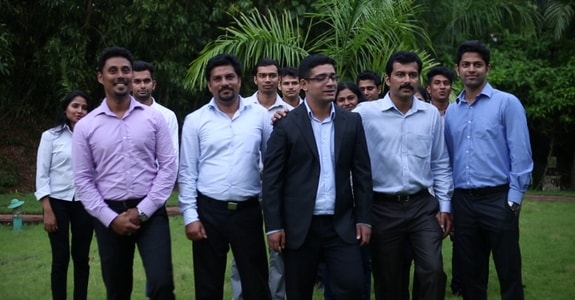Software development in India: My experience
I have been in contact with the Indian IT industry for almost 20 years now.
The first points of contact were somewhat tentative. It was a computer course in Thrissur, Kerala in the south of the country, teaching the basics of Java and C++.
I wasn’t very good at it, but the instructor seemed competent. That was around 1998.
Since then, I have come into contact with this topic again and again. In this post, some information and my experience on IT in India.
The beginnings
As early as 1966, IBM, the American IT giant, was active on the subcontinent. Due to political problems there were interruptions in between and the restart of IBM there was in 1992. Since then, the company has continued to increase its staff. Today, more than 100,000 employees already work there.
After my computer course in Thrissur and completing 12th grade in Kerala, I went back to Germany for studies. In the first semesters I was still enrolled in business informatics, but later decided to study business administration.
During my studies I also went to India from time to time to visit my parents. There I saw a lot of small web agencies in our city and wondered if you could actually get the cheap websites everyone invokes.
The first order
So I dared to do something new and went to one of these small agencies. There sat the owner and another employee.
I said that I needed a website. They didn’t want any more information than that.
The employee searched the Internet for two three websites and asked me if I would like one of them. I nodded briefly.
And immediately he copied the source code of this foreign page, made a few more clicks: Voila, the page is ready.
I was honestly shocked.
How can you infringe someone else’s copyright so badly (I guess that’s my German way of thinking).
When asked, I was met only with incomprehension. For the owner and the developer this was the most normal thing in the world.
In the end, however, I dropped the attempt. I don’t think I would have been able to convince them to build something from scratch.
The first rays of hope
Even though I only studied business informatics for a few semesters. During the studies the professors already pointed out that in the future the software development will take place in India and only the management/project management will be in Germany.
I found these statements very interesting.
There was also a real India boom in this period from 2000 to 2010. The topic of India consulting became more and more important for medium-sized companies and large corporations.
In addition, there have also been attempts to bring programmers from the subcontinent into the country using the green card scheme. Unfortunately, that failed. At that time, there were too many offers for such IT experts in the USA and Germany, which required German language skills, was not attractive enough.
It was also the time when large IT companies emerged in South Asia. Wipro, Tata Consultancy Service and Infosys are just a few examples. All these companies have several hundred thousand employees. However, the list can be completed with other examples: MindTree, MahindraSatyam, Cognizant, etc.
My own experiments
This also increased the desire to start an own attempt.
In early 2010, I took on some IT projects from Germany and tried to get them done on the subcontinent.
In the process, I noticed the following: The Dutch and Swedes are already much further ahead than Germany when it comes to offshore outsourcing.
Especially in the Netherlands, it feels like every company has a partnership with an IT service provider in South Asia.
However, after the initial successes, I realized that I should be in the subcontinent to provide quality services.
So I opened an IT company in India, from where I have been providing IT services to agencies, software companies and IT departments.
The best way
Over the years, I’ve also realized the best way to work with developers from there is to have them in direct contact with the customer.
This avoids communication problems that can arise due to too many management layers (project manager, team lead, sales staff, etc.).
Since then, I and my company have seen a steady increase in customer orders.
The negative sides of the Indians
There are also negative sides.
Here are a few of them:
Many developers at IT service providers say “Yes, sir, no problem” to everything.
The same with managing directors of these companies: “No problem, sir”.
Most of the time, it doesn’t mean anything good. Because often there is no special knowledge about this topic, but the owner simply asks the employees after project acquisition to learn this particular thing (programming language, framework, content management system, etc.).
This usually doesn’t work out, because in many areas (example: Magento, ASP.NET, Laravel, Python, PHP, etc.) you already need some experience to provide quality services.
That is why many projects fail. (Addendum: IT projects generally already fail at a high rate, see Chaos Report, which estimates up to 60 percent. Dishonesty will only make this percentage skyrocket).
The reason for this is mainly due to the following point: “Lack of empathy”.
If the company has no point of reference to Germany and people from there, then there is also a lack of empathy. Which includes an appreciation of the time spent and the budget used.
Are developers from there good or bad now?
Now that I myself employ developers in Kerala, I must say, programmers there are good to very good.
However, the question is always which values you as a company spread within the workforce. Is the goal to make the customer successful and uphold values such as quality, honesty, integrity and more? Or is it about generating the maximum turnover with the maximum profit in the shortest possible time? For many companies in South Asia, it’s about the latter.
However, the reality is also that there are companies there that deliver quality that is used by Audi, Porsche, BMW, C&A, Adidas, (insert all other well-known brands).
I myself have already employed developers in Kerala who have completed orders for BMW, C&A and Marco Polo. To list just a few of the brands with which we had contact.
Software development in India is therefore no longer a marginal phenomenon, but is already an important part of the IT industry in Germany.
Conclusion
In a post from 2013, I had already written down some of my experiences. Click here for the article: “
Experiences with Indian IT’learners
”
As mentioned, my opinion has changed somewhat since then and reflects the information from this post.
Especially companies that have project management, good English skills (most of them) and are familiar with programming can benefit from Indian programmers. They can be a good addition to the local programming team.
What is your experience?
Other interesting articles:
Outsourcing tips on Gründerszene
What makes sense in outsourcing and what does not – on Computerwoche
Images: YUHIRO.DE/ Flickr.com – Infosys
Sascha Thattil ist Blogger und Geschäftsführer bei YUHIRO. Wir bauen Entwicklerteams in Indien für Agenturen, IT Dienstleister und Softwareunternehmen auf.


